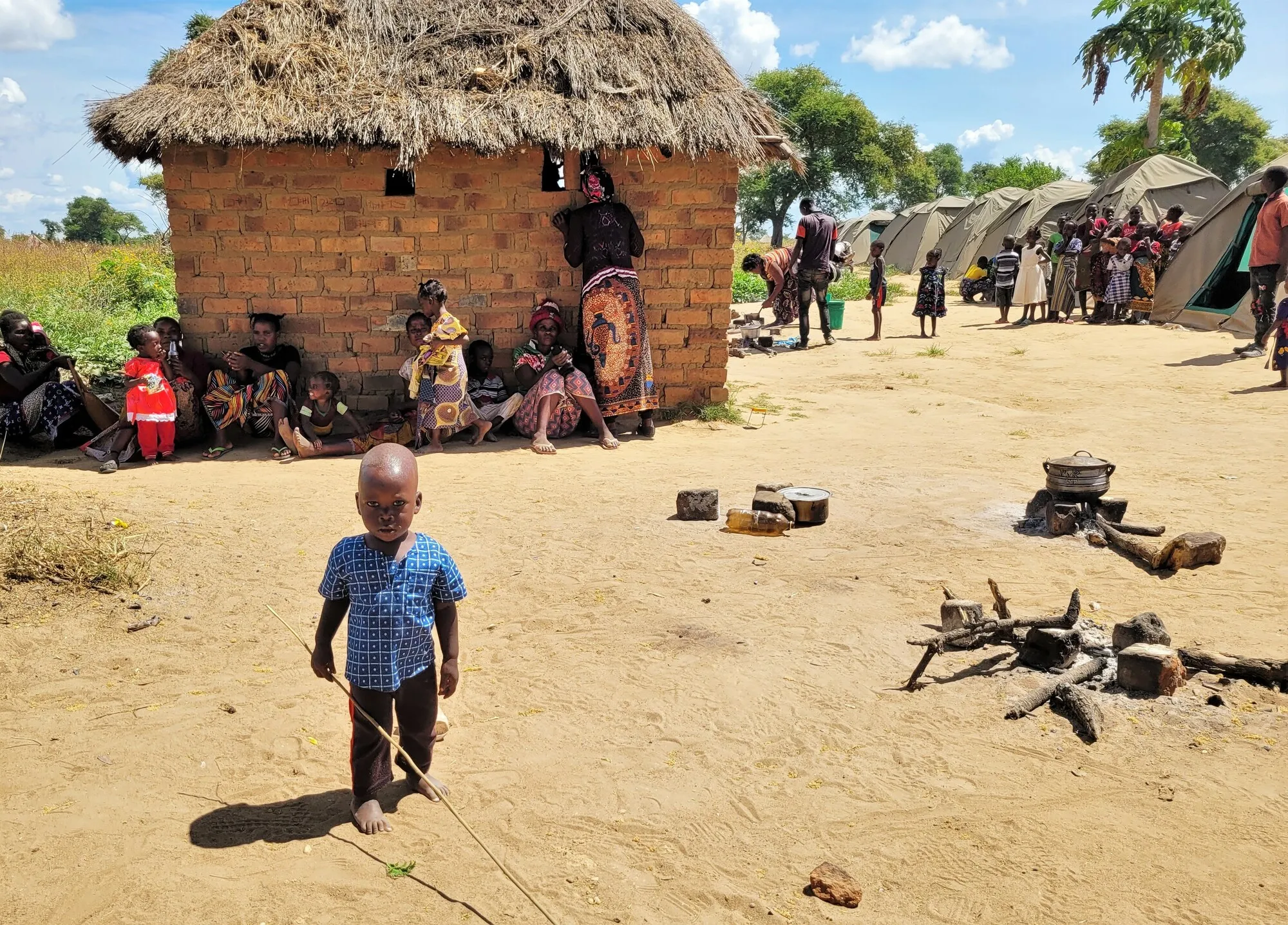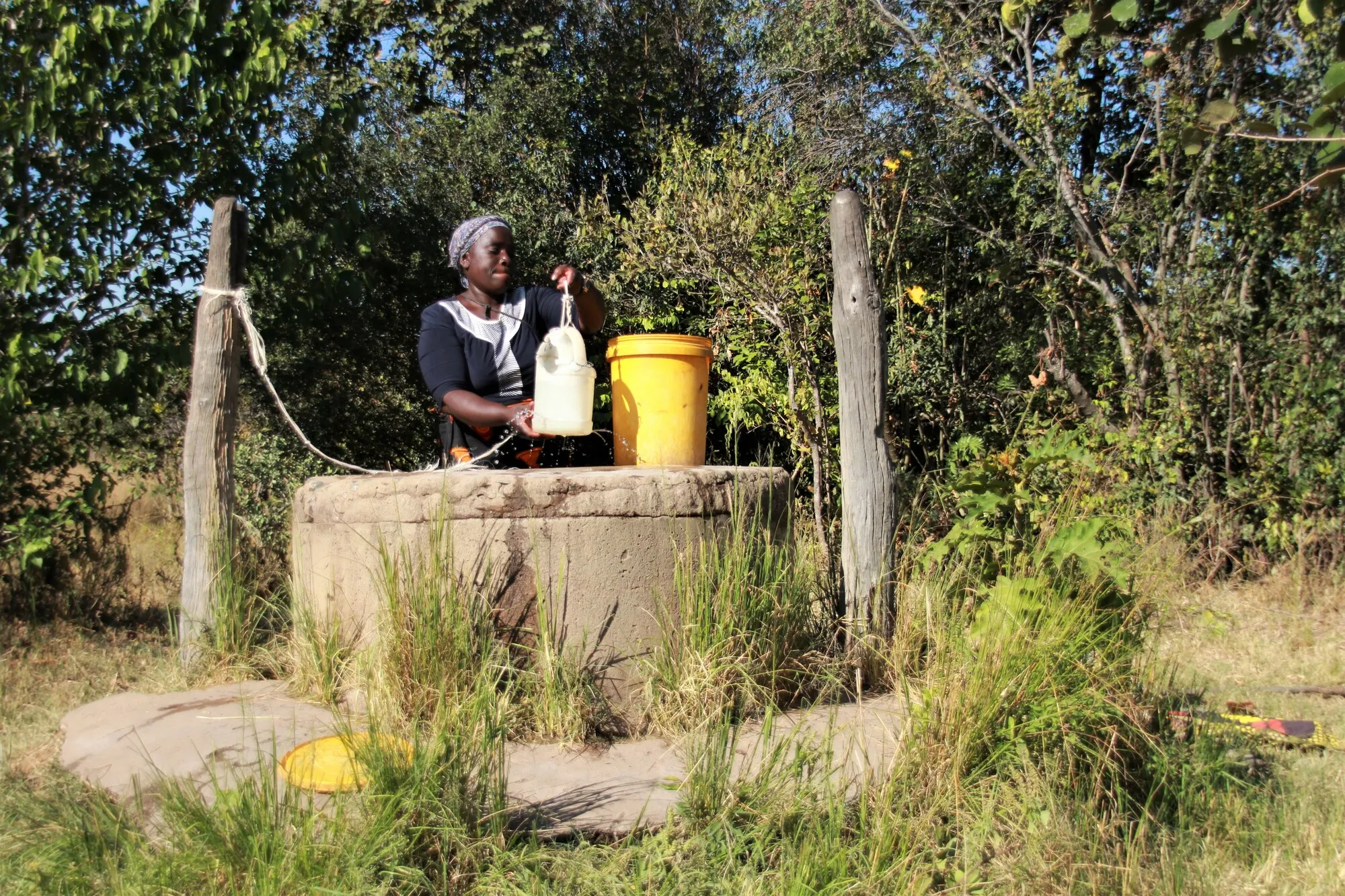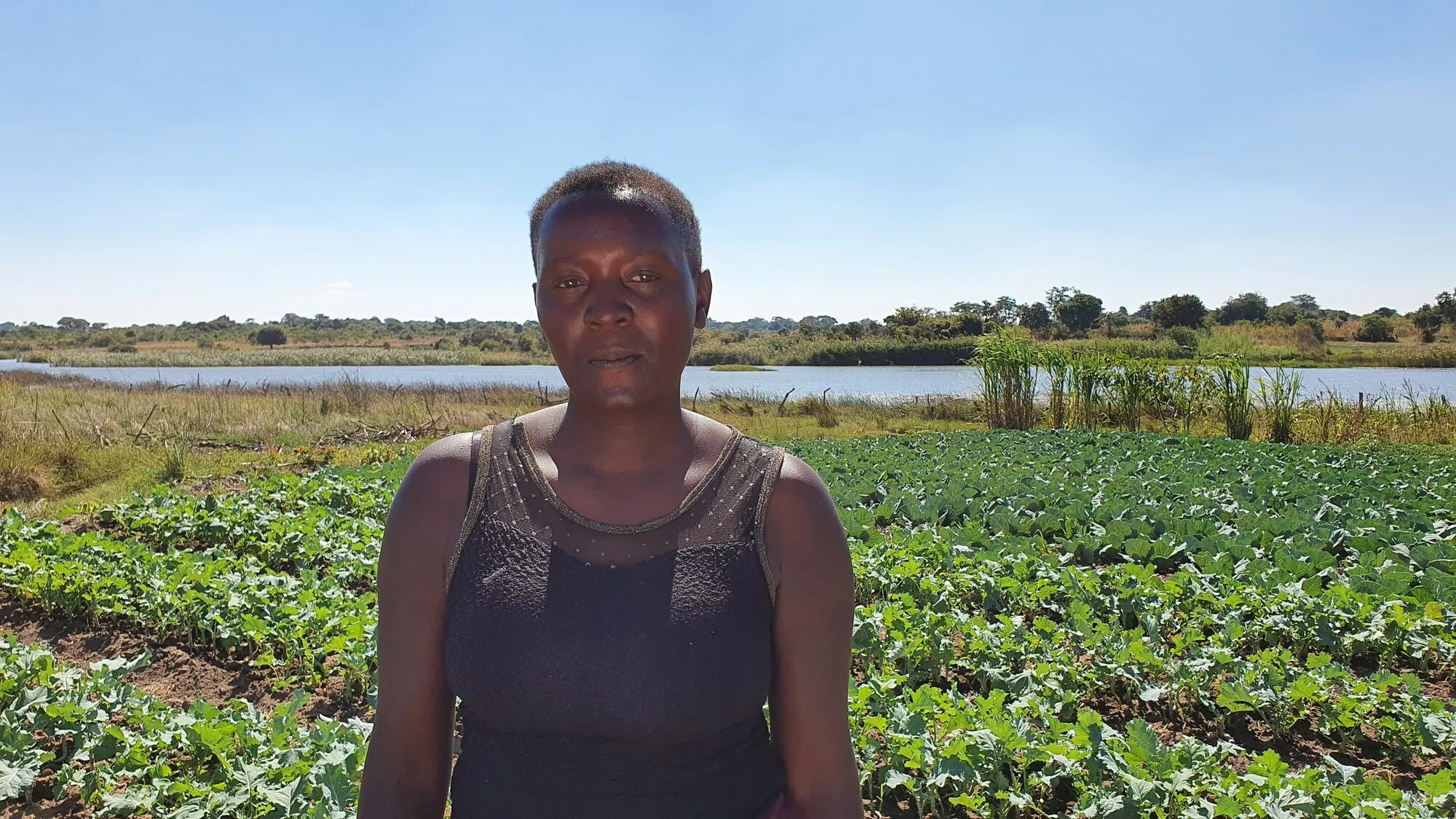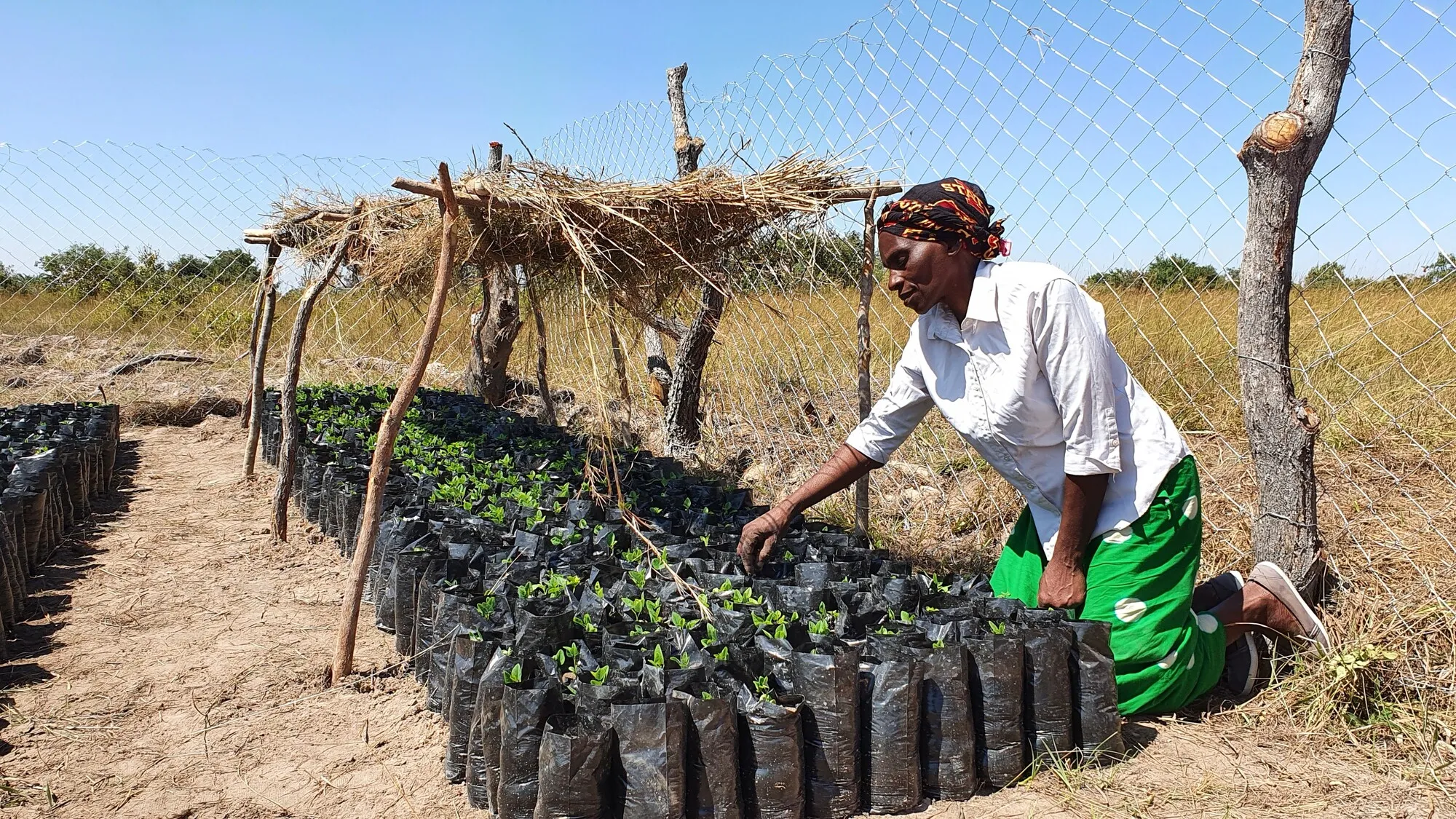When hunger strikes, her family’s only food source is Amaranth, a weed that requires little water to grow. It tastes like tender spinach and grows in their garden.
Fennie now lives with her sister Theresa, 88, and her sister’s grandchildren. They all sit on the porch. A walking stick is resting on Theresa’s shoulder as she has trouble walking. Her head is covered by the same wool hat as her sister’s, but hers is black. She nods occasionally while Fennie is speaking. Theresa’s seven children all died from different diseases.
“We take care of the grandchildren, as no one else is left,” says Fennie, waving towards the girl and boy leaning against the cool house wall.
“CARE came three times to us,” says Fennie. The first time to assess the damage and needs. The whole neighborhood was severely hit by the floods. They identified 24 households that have been affected the worst and needed immediate support.
“The second time they came and gave me some pots, canisters, blankets, solar lamps, and chlorine.”
The third time is a cash distribution of 400 Kwacha, which is about $21.
On the question of what she spent her money on, she laughs, “I didn’t spend it yet. I want to use it to rebuild my house. I put it into a small tin box and hold tightly on to it.”
She uses her hands to show how small she folded the money, so it fits snuggly in the tin box. Pressing her hands close to her heart, showing how precious it is to her and how proud she is to have kept it safe. She hopes that she soon can cook Nshima in her own kitchen again, sleep under her own roof and that the next flood will not hit them.
“You never know what will happen,” she says. “But you have to continue anyway.”









